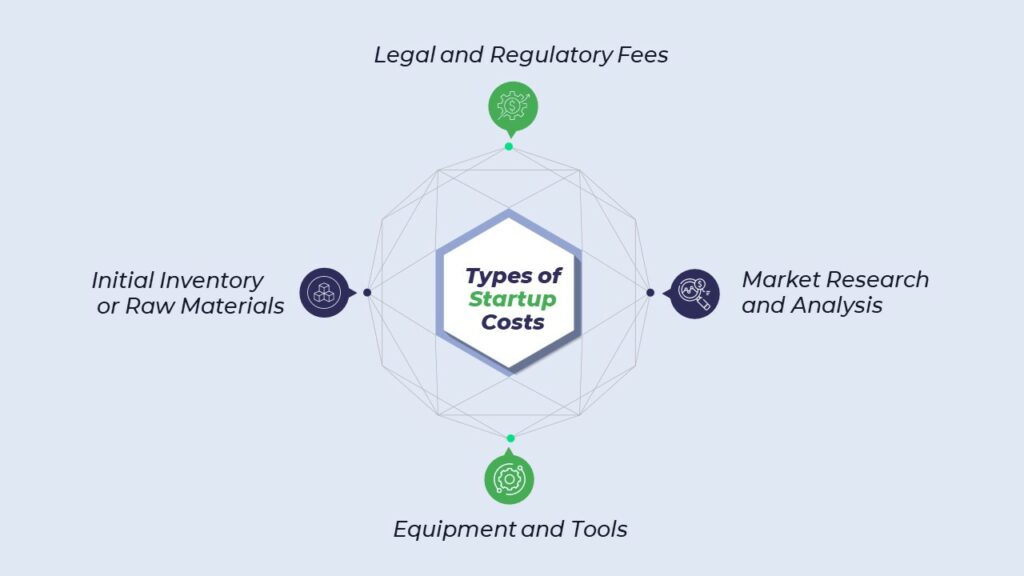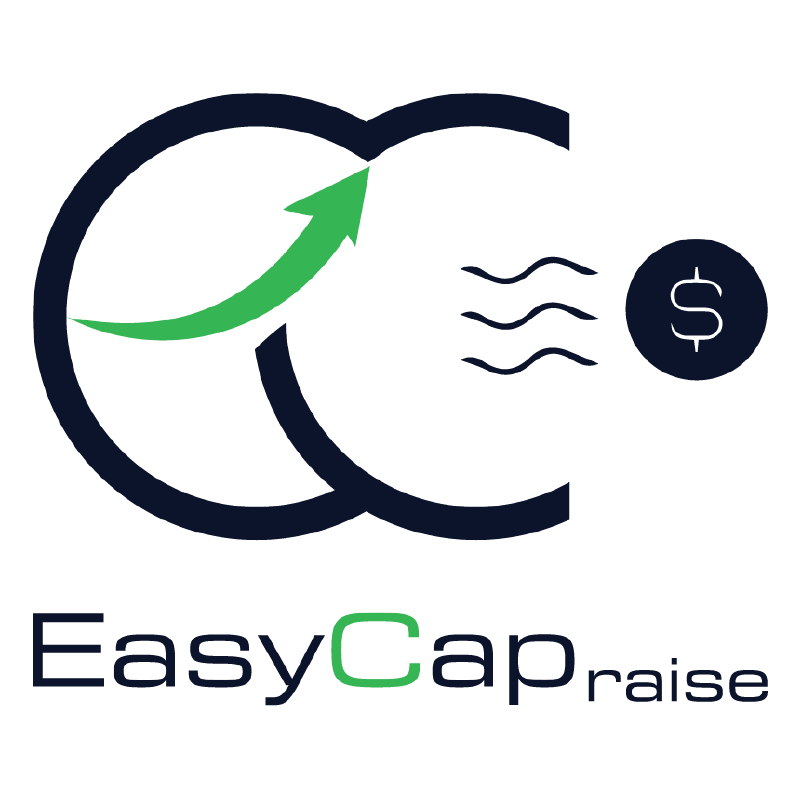All You Need to Know about Navigating Startup Costs for Your Business
[read_meter]
Starting a business requires careful planning and consideration of various factors, with startup costs being a critical component. These startup costs encompass both one-time expenses incurred during the initial setup and ongoing costs associated with running the business. By understanding the different types of startup costs and implementing effective strategies to manage them, entrepreneurs can enhance their chances of long-term success.
Types of Startup Costs
One-time Costs

Legal and Regulatory Fees
To establish your business legally, you will likely incur expenses related to business registration, licenses, permits, and legal consultations. These startup costs may vary depending on your location and the nature of your business.
Market Research and Analysis
Conducting thorough market research is crucial for identifying your target audience, understanding competition, and assessing market demand. Allocating funds for market research and financial analysis can provide valuable insights to shape your business strategy.
Initial Inventory or Raw Materials
If your business involves selling physical products, you will need to invest in initial inventory or acquire raw materials. It’s important to calculate these costs accurately to ensure you have sufficient stock to meet customer demands without overstocking.
Equipment and Tools
Depending on your industry, you may need specialized equipment, machinery, or tools to operate efficiently. Factor in the startup costs of purchasing or leasing such equipment when planning your startup expenses.
Get Started with Easy Capraise and Find Your Perfect Investor Match
Are you ready to take your business to the next level? At Easy Capraise, we specialize in helping businesses like yours secure the funding they need to thrive. Our expert team is dedicated to connecting you with the right investors who share your vision and can fuel your growth.
Don’t let financial constraints hold you back. Let us guide you through the capital-raising process, providing valuable insights, tailored strategies, and personalized support every step of the way. With our extensive network and industry expertise, we can help you unlock the funding opportunities that align with your business goals.
Embark on the exciting path to Start a Startup and journey toward success today! Click the link below to schedule a consultation with our team and discover how Easy Capraise can accelerate your business growth.
Ongoing Costs
Rent and Utilities
Securing a suitable location for your business and covering monthly rent and utility expenses are ongoing costs that must be considered. The price of commercial real estate and utility bills will vary based on your business’s location and size.
Salaries and Benefits
If you have employees, allocating funds for salaries, benefits, and payroll taxes is crucial. Ensure you comply with labor laws and consider the costs of providing competitive compensation packages to attract and retain talented individuals.
Marketing and Advertising
Promoting your business is essential for acquiring customers and building brand awareness. Allocate a portion of your budget to marketing and advertising activities, such as online campaigns, social media presence, and traditional advertising methods.
Operational Expenses
Operational expenses cover various day-to-day costs required to keep your business running smoothly. These may include office supplies, maintenance fees, insurance premiums, transportation costs, and any other recurring expenditures specific to your industry.
Budgeting for Startup Costs
Efficient budgeting is vital for managing startup costs, especially since startups fail more often due to financial mismanagement. Here are some key steps to consider:
Conducting a Comprehensive Cost Analysis
Thoroughly analyze each expense category to estimate the startup costs accurately. Research industry benchmarks and consult professionals to gain insights into typical expenditure patterns.
Prioritizing Expenses
Determine the critical expenses that are essential for launching and operating your business effectively. Prioritize these expenses when allocating your budget to avoid overspending on non-essential items.
Seeking Funding Options
Explore various funding options to secure capital for your startup costs. This may include self-funding, obtaining loans from financial institutions, seeking investors, or participating in government-sponsored programs or grants.
Cost-Saving Strategies for Startups
Implementing cost-saving strategies can help stretch your budget and optimize resource allocation. Consider the following approaches:
Embrace Lean Operations
Adopting a lean approach involves minimizing waste and focusing on efficiency. Streamline processes, eliminate unnecessary expenses, and continuously evaluate and improve your operations to reduce costs.
Outsourcing Non-Core Activities
Outsourcing non-core functions, such as accounting, IT support, or marketing, can be a cost-effective solution. By leveraging external expertise, you can save on hiring and training expenses while benefiting from specialized knowledge.
Negotiating with Suppliers and Vendors
Negotiating favorable terms with suppliers and vendors can lead to cost savings. Explore bulk-purchasing discounts, extended payment terms, or mutually beneficial agreements that align with your business goals.
Utilizing Technology Solutions
Leverage technology to automate processes and reduce manual labor. Adopting cloud-based software, project management tools, and customer relationship management systems can improve efficiency and lower operational costs.
FAQs
What are startup costs for a business?
Startup costs for a business refer to the expenses incurred during the initial phase of launching a new venture. These costs are associated with setting up the business, establishing its infrastructure, and getting it ready for operation. Startup costs can vary significantly depending on the type of business, industry, location, and scale of operations.
Some common components of startup costs include:
Legal and Regulatory Fees: Expenses related to business registration, licenses, permits, and legal consultations.
Market Research and Analysis: Costs associated with conducting thorough market research to understand the target audience, competition, and market demand.
Initial Inventory or Raw Materials: If the business involves selling physical products, funds are required to purchase initial inventory or acquire raw materials.
Equipment and Tools: Depending on the nature of the business, there may be a need for specialized equipment, machinery, or tools to carry out operations efficiently.
Rent and Utilities: Costs associated with securing a suitable location for the business and covering monthly rent, utilities, and other facility-related expenses.
Salaries and Benefits: If the business has employees, funds need to be allocated for salaries, benefits, and payroll taxes.
Marketing and Advertising: Expenses related to promoting the business, building brand awareness, and acquiring customers through various marketing channels and advertising campaigns.
Operational Expenses: Ongoing costs required to keep the business running smoothly, such as office supplies, maintenance fees, insurance premiums, transportation costs, and other recurring expenditures specific to the industry.
It’s important for entrepreneurs to carefully estimate and plan for these startup costs of a business to ensure they have the necessary financial resources to launch and sustain their businesses. By effectively managing startup costs, businesses can improve their chances of achieving profitability and long-term success.
What is a startup costs calculator?
A startup costs calculator is a tool or software application designed to help entrepreneurs estimate and calculate the various expenses associated with starting a new business. It provides a systematic way to identify, quantify, and organize the different components of startup costs.
Startup costs calculators typically include fields or categories where you can input information related to different expense items, such as legal fees, equipment purchases, marketing expenses, rent, utilities, and more. The calculator then performs calculations based on the provided data to give you an overall estimate of the total startup costs.
Some startup costs calculators may also provide additional features, such as:
Predefined Expense Categories: They offer a list of common startup cost categories to ensure comprehensive coverage.
Itemized Expense Breakdown: They break down the total costs into individual expense items, allowing you to see a detailed breakdown of where the funds will be allocated.
Cost Adjustment and Comparison: They allow you to adjust the estimated costs based on specific factors or industry benchmarks. This feature enables you to refine the calculations and see the impact of different scenarios on your budget.
They export the calculated startup costs for future reference or to share with others involved in the business-planning process.
How can I estimate my startup costs accurately?
To estimate startup costs accurately, conduct thorough research, consult professionals, and analyze industry benchmarks to gain insights into typical expenditure patterns.
Can I reduce startup costs by outsourcing certain activities?
Yes, outsourcing non-core activities can be a cost-effective solution. By leveraging external expertise, you can save on hiring and training expenses while benefiting from specialized knowledge.
Are there any government-sponsored programs or grants available for startup funding?
Yes, various government-sponsored programs and grants exist to support startups. Research and explore the options available in your region or industry.
Conclusion
Navigating startup costs is a crucial aspect of establishing and running successful Unicorn Startups. By understanding the different types of startup costs specific to such ambitious ventures, budgeting strategically, and implementing cost-saving measures, entrepreneurs can position themselves for long-term growth and financial stability within the competitive landscape of the startup ecosystem. Remember, effective cost management is an ongoing process that requires continuous evaluation and adaptation to the changing needs of your business, especially when aiming to reach the prestigious status of a unicorn startup.
Contact us
Good to have you here! If you have any queries, please leave your message. Our team will reach out soon:)
.







